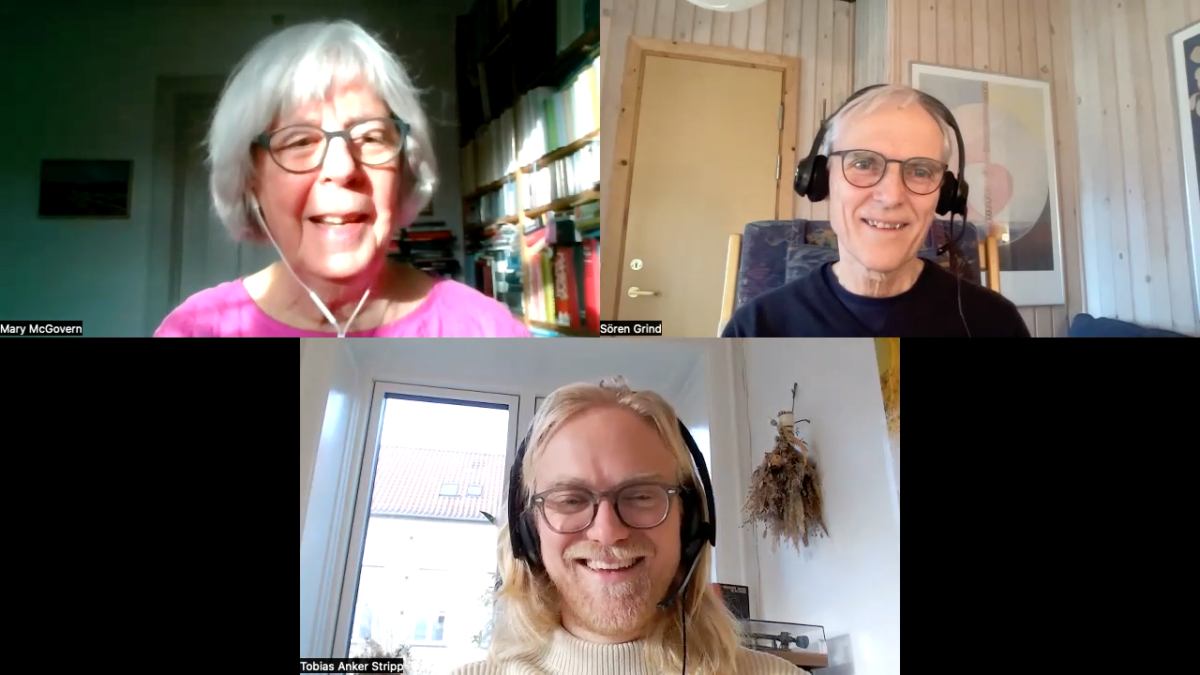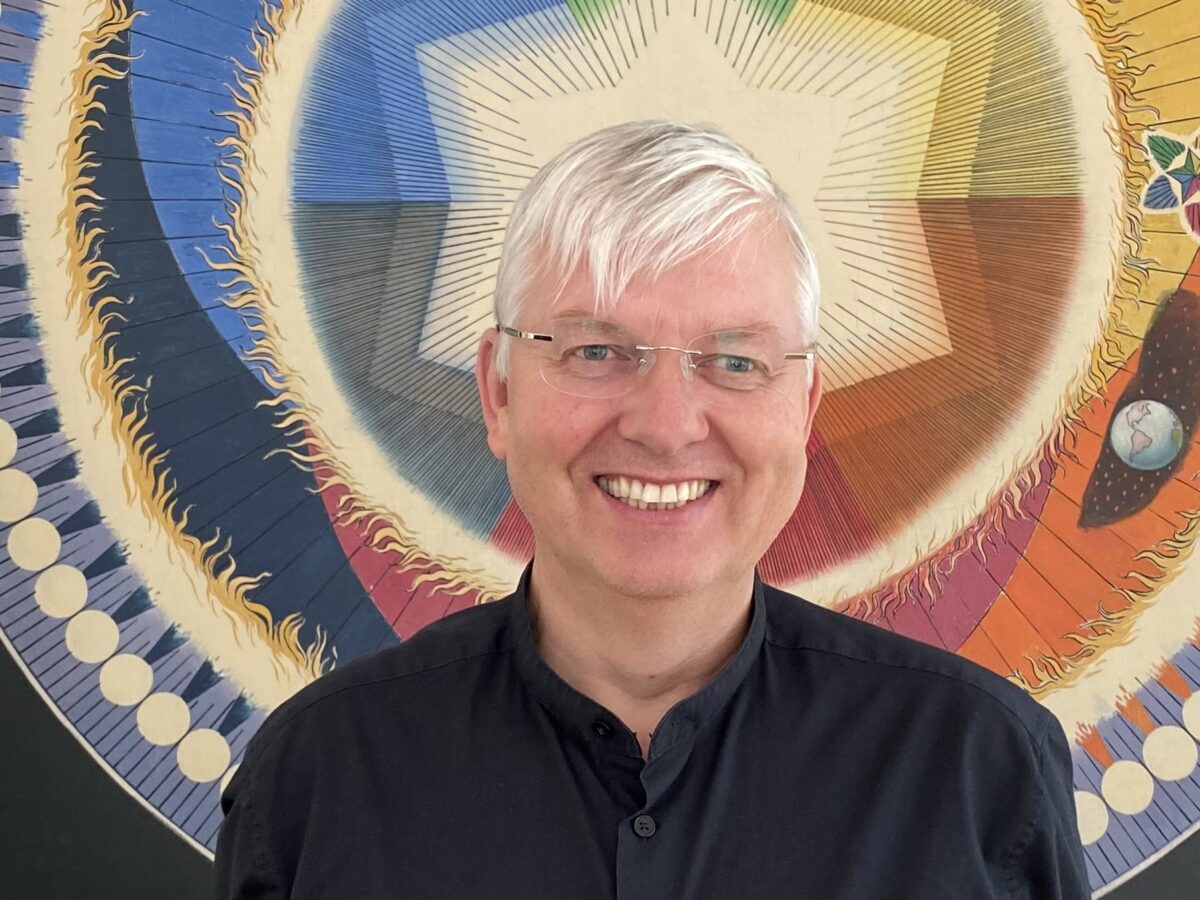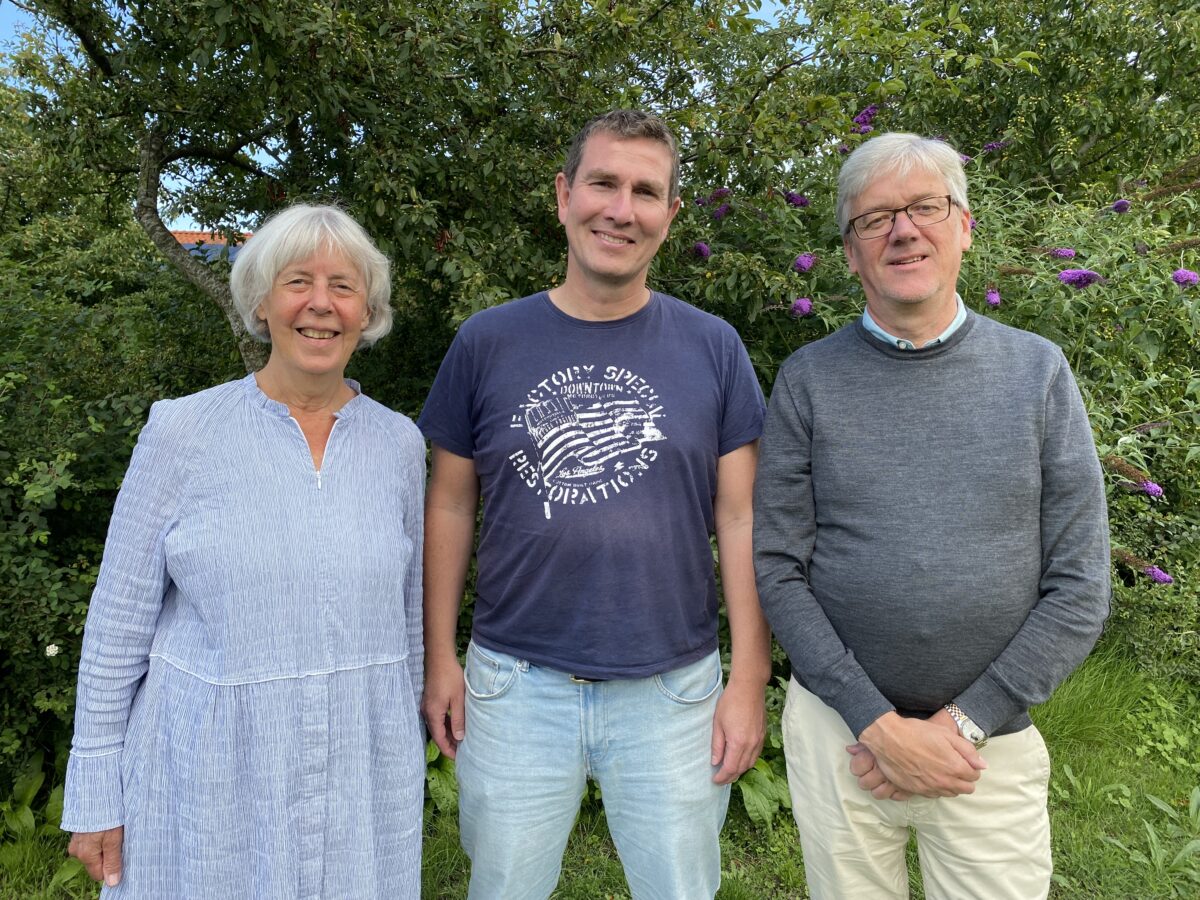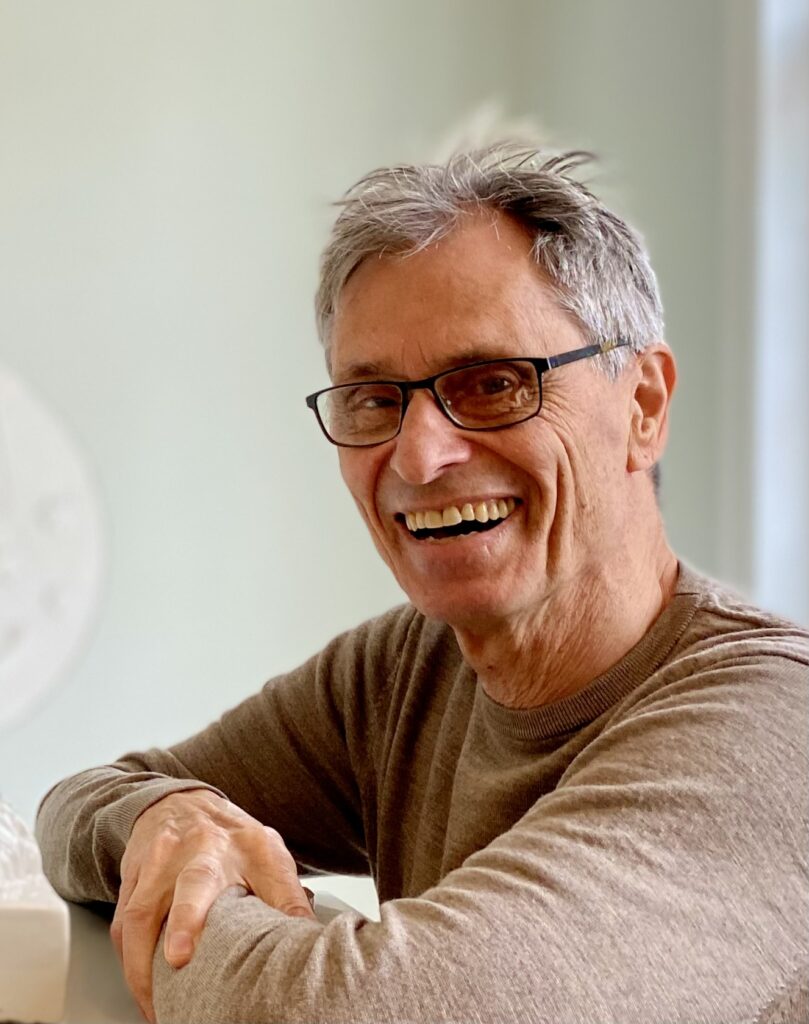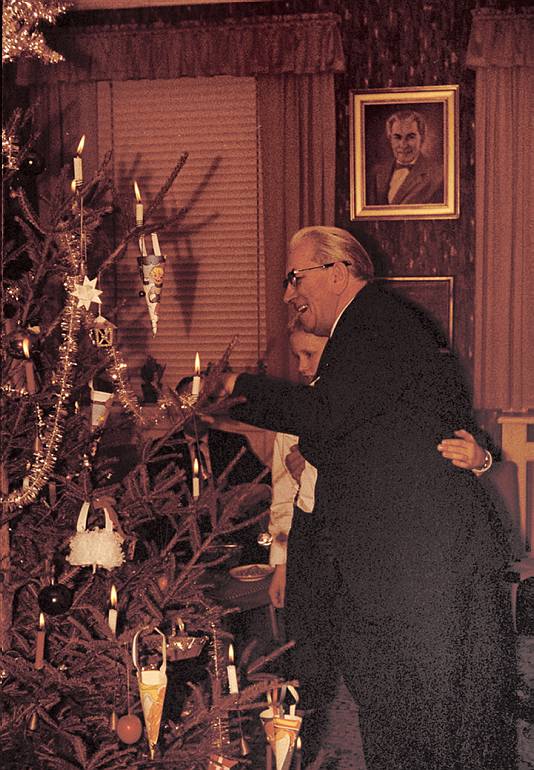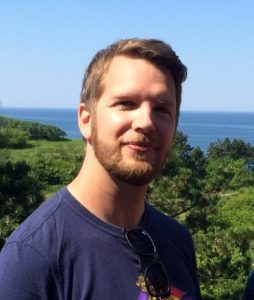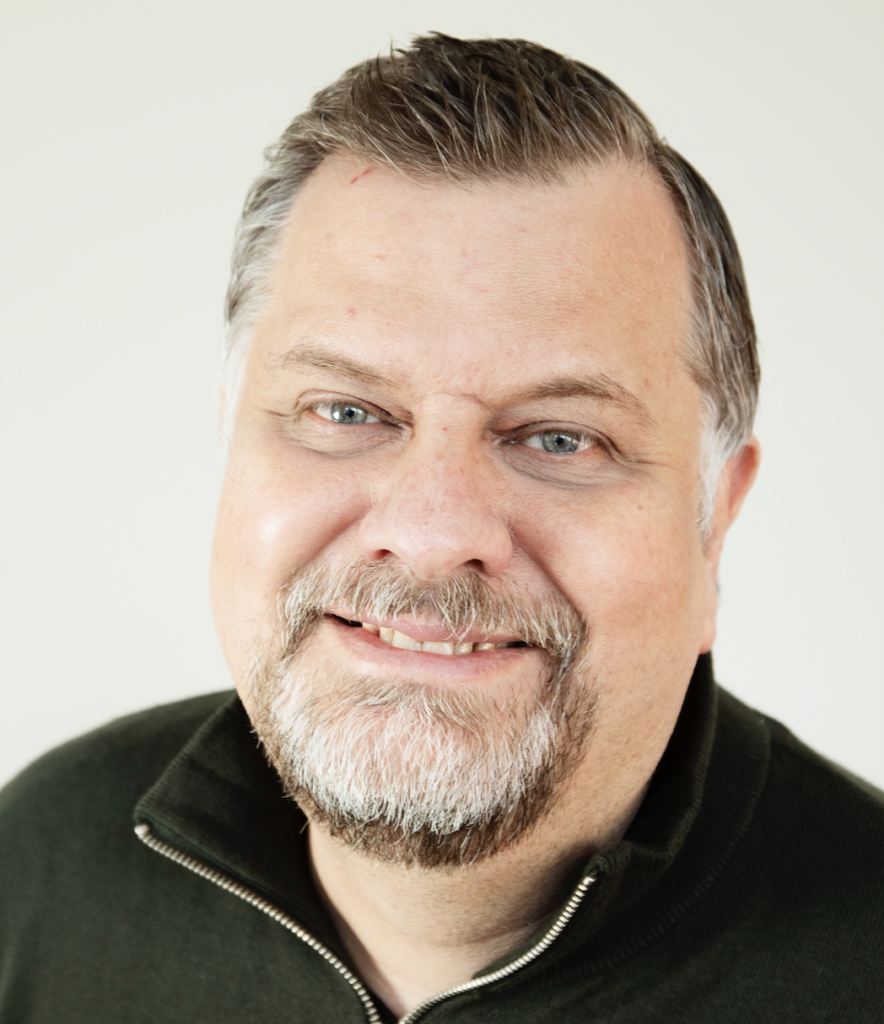
In this episode Mary McGovern interviews Torben Husum, the current manager of the Martinus Institute in Frederiksberg, Copenhagen. After finding an article by Martinus and not least a captivating photo of him in the Danish magazine Gralen (The Grail), Torben embarked on a private, intensive study of Livets Bog (The Book of Life). Only many years later did he begin to attend lectures and courses on Martinus Cosmology.
Today he works at the Martinus Institute with various tasks including coordinating volunteers, looking after the fabric of the building, live-streaming lectures, and maintaining the institute’s website: www.martinus.dk.
Already a published author of three books and several short stories, he is currently writing a short introduction to Martinus’s life and world picture. He finds it important to provide a brief biography of Martinus and to convey, among many other aspects of Martinus’s world picture, an explanation of the meaning of darkness and the evolution of sexuality. Inspired by Martinus’s analysis that we are all “wounded refugees between two kingdoms”, meaning that we are no longer pure animals but not yet completely evolved human beings, this episode takes up aspects of mankind’s progression towards the resolution of some of its current challenges.
This podcast was recorded by Mary McGovern at the Martinus Institute on 5th September 2024.
Music composed and performed by Lars Palerius.
Photo: Marie Rosenkrantz Gjedsted
Links and notes:
Live-streamed lectures on Martinus Cosmology in several languages: crowdcast.io/martinusinstitut. Scroll down through the many Scandinavian titles until you find titles in English.
The Martinus Institute’s English You Tube channel for free lectures and interviews:https://www.youtube.com/@TheMartinusInstitute
Opening hours at The Martinus Institute: Tuesdays, Wednesdays and Thursdays 10am–4pm. Also open on approx. alternate Saturdays, when there are lectures. Check martinus.dk for the calendar of events.

